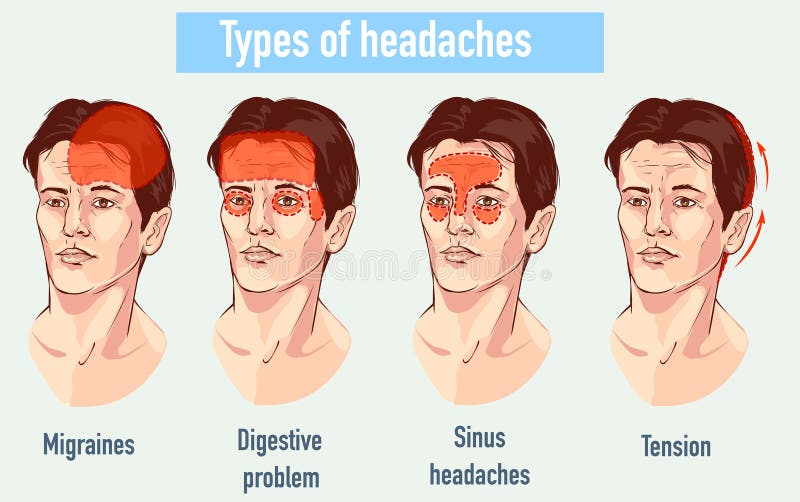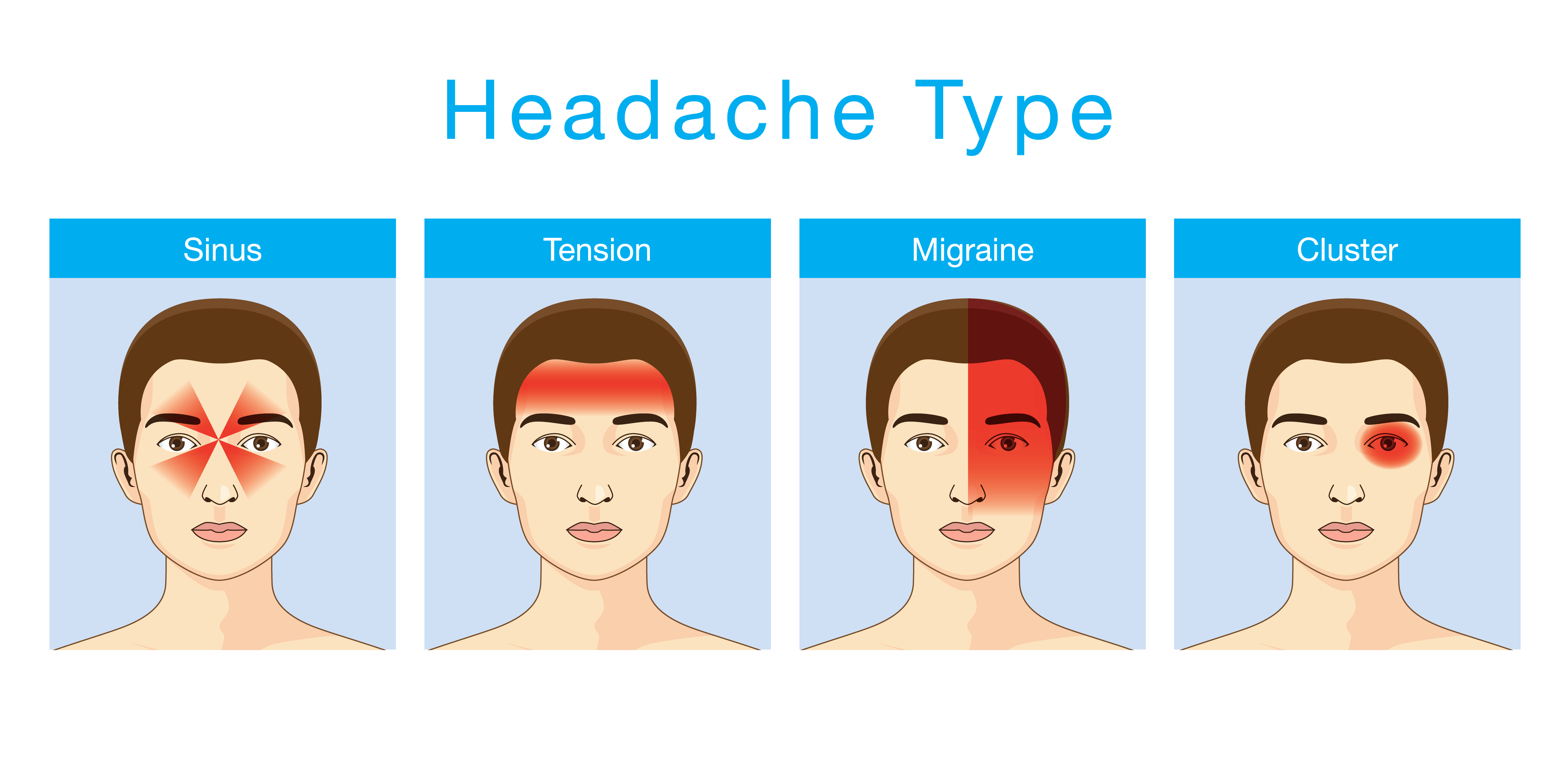What Do Headaches In The Front Of Your Head Mean?
Experiencing headaches in the front of your head can be a distressing and confusing situation. Many people often wonder what these headaches signify and whether they indicate a serious underlying issue. Frontal headaches, as they are commonly referred to, can result from a variety of causes, ranging from stress and tension to more complex medical conditions. Understanding the possible reasons behind these headaches is the first step toward finding relief.
Headaches in the front of your head are one of the most common types of headaches people experience worldwide. According to the World Health Organization (WHO), headaches affect over half of the global population, with tension headaches being the most prevalent. While not all frontal headaches are severe or indicative of a dangerous condition, it is essential to understand the potential causes and symptoms to ensure proper treatment.
This article aims to provide a comprehensive guide on what headaches in the front of your head mean, including their causes, symptoms, diagnosis, and treatment options. Whether you're dealing with occasional discomfort or chronic pain, this guide will help you navigate the complexities of frontal headaches and empower you to make informed decisions about your health.
Read also:Kevin Leonardo Nair Video A Comprehensive Analysis And Insights
Table of Contents
- Understanding Frontal Headaches
- Common Causes of Frontal Headaches
- Symptoms Associated with Frontal Headaches
- Diagnosing Frontal Headaches
- Treatment Options for Frontal Headaches
- Prevention Strategies for Frontal Headaches
- Types of Headaches That Affect the Frontal Area
- Lifestyle Factors That Contribute to Frontal Headaches
- When to See a Doctor
- Conclusion
Understanding Frontal Headaches
Frontal headaches refer to pain or discomfort that is localized in the forehead or front part of the head. These headaches can vary in intensity, from mild discomfort to severe, debilitating pain. Understanding the mechanisms behind frontal headaches is crucial for identifying their root causes and determining appropriate treatment plans.
How Frontal Headaches Occur
Frontal headaches often result from the activation of pain-sensitive structures in the head, such as the nerves, blood vessels, and muscles. Stress, tension, and inflammation can all contribute to the development of these headaches. Additionally, certain medical conditions, such as sinusitis or migraines, can cause pain in the frontal region.
While most frontal headaches are not life-threatening, they can significantly impact daily life and productivity. Recognizing the patterns and triggers of these headaches is the first step toward managing them effectively.
Common Causes of Frontal Headaches
There are several potential causes of headaches in the front of your head. Understanding these causes can help you identify the underlying issue and seek appropriate treatment.
Tension-Type Headaches
Tension-type headaches are one of the most common causes of frontal headaches. These headaches typically result from muscle tension in the neck and scalp, often triggered by stress, poor posture, or lack of sleep.
Sinus Headaches
Sinus headaches occur when the sinuses become inflamed or infected, leading to pressure and pain in the forehead. These headaches are often accompanied by nasal congestion, facial tenderness, and a runny nose.
Read also:Why Did Avicii Kill Himself Exploring The Life And Tragic Death Of A Music Icon
Migraines
Migraines can also cause pain in the front of the head, although they typically affect other areas as well. Migraines are characterized by throbbing pain, sensitivity to light and sound, and nausea.
Symptoms Associated with Frontal Headaches
Headaches in the front of your head can present with a variety of symptoms, depending on the underlying cause. Recognizing these symptoms can help you determine whether the headache is mild or indicative of a more serious condition.
- Persistent pain in the forehead
- Tightness or pressure around the head
- Nasal congestion or facial tenderness (in sinus headaches)
- Throbbing pain and sensitivity to light (in migraines)
- Difficulty concentrating or irritability
Diagnosing Frontal Headaches
Diagnosing the cause of headaches in the front of your head involves a combination of medical history, physical examination, and diagnostic tests. A healthcare professional will evaluate your symptoms, lifestyle, and potential triggers to determine the most likely cause.
Medical History
Your doctor will ask about the frequency, duration, and intensity of your headaches, as well as any factors that seem to trigger them. They may also inquire about your stress levels, sleep habits, and overall health.
Physical Examination
A physical examination may include checking for tenderness in the sinuses, assessing muscle tension in the neck and scalp, and evaluating neurological function.
Diagnostic Tests
In some cases, additional tests such as imaging studies (e.g., CT scans or MRIs) may be necessary to rule out more serious conditions like brain tumors or infections.
Treatment Options for Frontal Headaches
Treatment for headaches in the front of your head depends on the underlying cause. In many cases, lifestyle changes and over-the-counter medications can provide relief. However, more severe cases may require prescription medications or specialized therapies.
Over-the-Counter Medications
Common over-the-counter pain relievers, such as ibuprofen or acetaminophen, can effectively alleviate mild to moderate frontal headaches. However, it is important to use these medications as directed to avoid potential side effects.
Prescription Medications
For more severe or chronic headaches, your doctor may prescribe medications such as triptans for migraines or corticosteroids for sinus headaches.
Alternative Therapies
Alternative therapies, such as acupuncture, massage, or biofeedback, may also help reduce the frequency and intensity of frontal headaches. These therapies focus on addressing the root causes of tension and stress.
Prevention Strategies for Frontal Headaches
Preventing frontal headaches involves managing stress, maintaining good posture, and adopting healthy lifestyle habits. By addressing potential triggers, you can reduce the likelihood of experiencing these headaches.
- Practice stress-reducing techniques such as meditation or deep breathing exercises.
- Ensure proper ergonomics at work to avoid muscle tension in the neck and shoulders.
- Stay hydrated and maintain a balanced diet to support overall health.
- Get adequate sleep and establish a regular sleep schedule.
Types of Headaches That Affect the Frontal Area
Several types of headaches can cause pain in the front of your head, each with its own set of characteristics and triggers. Understanding these differences can help you identify the specific type of headache you are experiencing.
Tension-Type Headaches
Tension-type headaches are characterized by a dull, aching pain that feels like a tight band around the head. They often result from stress or muscle tension and can last from 30 minutes to several days.
Cluster Headaches
Cluster headaches are rare but extremely painful. They typically occur in cycles and cause intense, burning pain around one eye or in the frontal area.
Sinus Headaches
Sinus headaches are associated with sinus infections or inflammation. They cause deep, throbbing pain in the forehead and are often accompanied by nasal symptoms.
Lifestyle Factors That Contribute to Frontal Headaches
Certain lifestyle factors can increase the likelihood of experiencing headaches in the front of your head. By identifying and addressing these factors, you can reduce the frequency and severity of these headaches.
Poor Posture
Poor posture, especially when sitting at a desk for long periods, can lead to muscle tension in the neck and shoulders, contributing to frontal headaches.
Lack of Sleep
Sleep deprivation can increase stress levels and disrupt hormone balance, making you more susceptible to headaches.
Dehydration
Not drinking enough water can lead to dehydration, which is a common trigger for headaches, including those in the frontal region.
When to See a Doctor
While most frontal headaches are not serious, there are certain signs that warrant immediate medical attention. If you experience any of the following symptoms, consult a healthcare professional:
- Sudden, severe headache with no known cause
- Headache accompanied by fever, confusion, or neurological symptoms
- Persistent headaches that do not respond to treatment
- Headache following a head injury
Conclusion
Headaches in the front of your head can have a variety of causes, ranging from stress and tension to more serious medical conditions. By understanding the potential causes, symptoms, and treatment options, you can take proactive steps to manage these headaches effectively.
We encourage you to share your experiences or ask questions in the comments section below. Additionally, feel free to explore other articles on our website for more information on related topics. Remember, if your headaches persist or worsen, it is always best to consult a healthcare professional for personalized advice and treatment.
Data Source: World Health Organization, Mayo Clinic, National Institute of Neurological Disorders and Stroke

